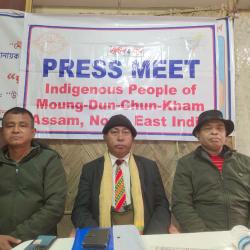How will India and other countries in the world achieve the millennium development goal (MDG) target to reduce by half the proportion of 2.6 billion people who have no access to basic sanitation by 2015?
On this year's World Water Day (22 March 2008), to put the spotlight on sanitation the United Nations General Assembly declared the year 2008 as the International Year of Sanitation. The goal is to raise awareness and to accelerate progress towards the MDG targets to halve the number of people without access to basic sanitation by 2015.
Where is the estimated US$ 10 billion annual cost to achieve this MDG target by 2015 going to come from? From 2008-2015, we will need US$ 80 billion to achieve this target which will halve the number of 2.6 billion people who presently have no access to basic sanitation (and even if we achieve this MDG target it will still leave the other half (1.3 billion people) without access to basic sanitation in 2015!).
This amount is less than 1% of world military spending in 2005, one-third of the estimated global spending on bottled water, or about as much as Europeans spend on ice cream each year.
"Private corporations, including the bottled water companies, who have largely demonstrated ruthless capital-intensive approach with blatant disregard to environmental or ecological aspects depriving local communities from access to natural resources, should be the ones to foot this bill. Not the public sector or governments of developing countries" says Dr Sandeep Pandey, Ramon Magsaysay awardee (2002) and Convener of National Alliance of People's Movements (NAPM).
Aggressive marketing targeted at those 'who-have-money-to-pay' has contributed extensively to exacerbate the gap between the rich and poor communities. This has not only jeopardized basic human rights to life and dignity of the underserved communities, but also left the 'rich' with a mountainous burden of lifestyle diseases to deal with.
Water is a public good, not a commodity to be bought and sold. Increasing corporate control of water is undoubtedly alarming.
"Corporations are contributing to, and then profiting from, the global water crisis," had said Kathryn Mulvey, Executive Director of Corporate Accountability International (www.stopcorporateabuse.org). She stressed further that "One of the greatest threats to people's access to water today is that corporate use of water is often prioritized over people's daily use."
The money required to achieve MDG goals by halving the number of people who don't have access to basic sanitation is ONE-THIRD of the global spending on bottled water. "If one-third of the profits from bottled water companies can help 1.3 billion people to get access to basic sanitation, not doing that and letting bottled water companies mint money is outrageous" asserts Dr Pandey.
As water becomes more precious, corporations like Coke, Pepsi, Nestlé, Suez and Veolia are increasingly trying to control and profit from it. Ironically enough, at the same time,these corporations are trying to position themselves as 'improving' people's access to water.
As natural rights, water rights are usufructuary rights (water can be used but not owned). People have a right to life and the resources that sustain it, such as water. The necessity of water to life is why, under customary laws, the right to water has been accepted as a natural, social fact.
That is why governments and corporations cannot alienate people of their water rights. On this World Water Day and beyond, not only we need to challenge the alarming corporate control of water, but also stake a claim to financial and natural resources that rightfully should be utilized to provide access to basic sanitation to all.
- Add new comment
- 9447 reads










Comments
Pages
Add new comment